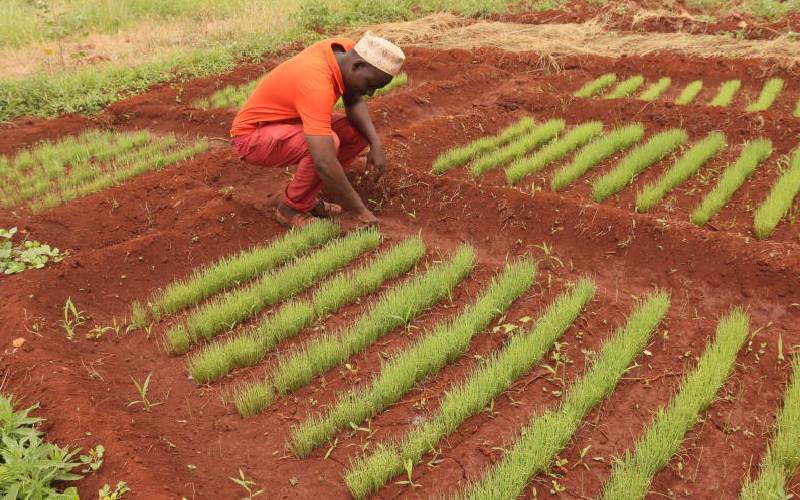×
The Standard e-Paper
Smart Minds Choose Us

A resident of Isiolo county at Garabatura who have embraced the Agro Pastoralists farming in the region through the National irrigation Authority. [Jacob Kaimenyi, Standard]
Isiolo County for many years has been known to be a dry area where most residents depended on livestock farming.